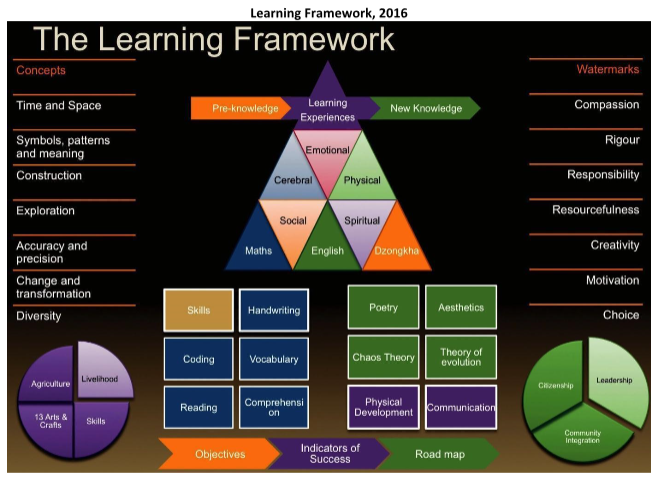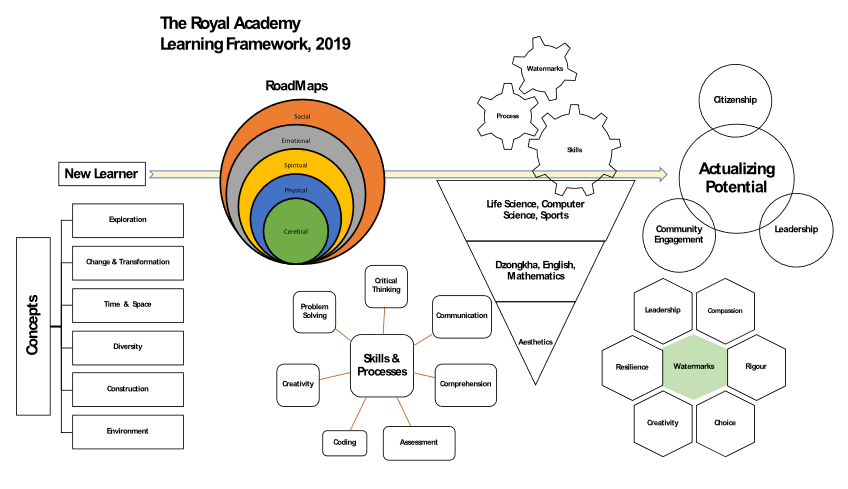There is a pause in the normal delivery of education both in schools and at universities. This gives learners the opportunity to reflect on and consider what is being learnt and how this learning is happening. Is it really fit for the purpose of today? The students who are graduating this year will find themselves in a very different world from the one they were expecting to graduate into. Within the space of a few months the economy and the job market has changed dramatically and as of now we are unsure when and what it will look like. What will the world need when we come out on the other side of this? Who will be able to step up and take the risks of moving forward in a different world? It would be a great shame that if after the devastation the pandemic has caused globally we return to business as usual without considering how we can do things differently, how we can do things better. Change often happens slowly in large educational institutions because exam deadlines are so tight educators can’t risk trying something new. But now we have the time, and surely it’s our duty as educators to consider how we can make what we do better.
Often when reflecting on a complex and multifaceted system such as education and learning it makes sense to start at the core. There are certain principles that should underpin every education system.The methods to implement these principles may be varied. But, when students, teachers and other stakeholders understand these principles, they will be able to perform their role at an elevated level. Take for example the principle of taking ownership of one’s learning. When we understand and internalise that it is the teachers responsibility to help students take control of their learning process and that it is up to the students to determine how best they learn, we are moving in the right direction. The crux of what these principles should be comes down to the question of what is the role of education. In my opinion the role of education is to foster persons of substance who help their community thrive.
There are many different methods that can be used to achieve the principles, the current pause in the ‘normal ’educational practices again offers an opportunity to pause and assess the effectiveness of the methods that are currently being used. Are they fit for purpose? Are they still relevant? The world is changing so much faster than the education sector can respond to and therefore many methods that were once considered relevant no longer serve their purpose. A key question linked to the idea of what methods help underpin the principles of education is the question of ‘what’ should be learnt. This is when the wider group of stakeholders come into play. Rather than having a curriculum in place for every subject and forcing every learner, irrespective of their preferences, to go through this stringent process, why not collaborate with the learners to chart a learning journey? Rather than saying that an education is the K-12 experience followed by specialising in a higher education discipline, we should pause to ask if that is indeed the best way forward.
Ultimately, any method that works towards achieving the underlying principles of education should incorporate the ideas embedded in the Five Areas of Development curriculum. At the Royal Academy, where we practice the Five Areas of Development, learning experiences are created with the learner at the centre. Feedback from learners on what they want to learn is incorporated into the creation of the learning framework for that year. And this is done each and every year. Students are told that they have the freedom not only to express their interests but carve their path. Going to a university after graduation is not compulsory. Students are given the opportunity to explore their chosen areas, in the form of school placements, to experience their area of interest before deciding whether they want to learn more about it. When people give me feedback on this ‘alternative’ approach to education, I am always surprised that it is called the “alternative approach”. Why is this not the mainstream approach?

As mentioned one of the core ideas in the 5 Areas of Development curriculum is to help learners reflect on what they are learning, why they are learning it and what part of their development it might be strengthening. Allowing learners to reflect and focus on their learning is highly essential. It is through reflection that the brain is able to process the information and situate it to your unique context. The way of doing this can be very different depending on the age of the learner. For university students, who should consistently be taking ownership of their own development and learning, an understanding of why they are learning what they are learning is crucial. Is it purely for the love of learning or is it to allow them to pursue a particular career, understand a particular person or period in our history. All of these are wonderful reasons to be learning something. What I fear will be a common answer is that it is on the curriculum or my teacher told me to. If this is the case, then there is no ownership over what is being learnt by the learner and therefore the motivation and enjoyment will be reduced.

Another thing to consider will be the plethora of online learning platforms that are emerging due to the sudden increase in online and remote learning. In the post pandemic era it’s likely that the strides made in online/remote learning will be incorporated into more mainstream schooling. To what extent this will happen may vary across countries and levels of educational institutions but it’s important that we as educators consider the implications of this and ensure that it’s allowing learners to become their best selves. Is the model of online learning itself just a remote version of classroom lecture learning? Or could it be more than that? The opportunity for students to do school / university learning from home has exposed young people to the myriad of learning opportunities out there and it’s possible they could get lost in all the information. This is where the Five Areas of Development Curriculum can provide a framework for learners to take ownership of their learning and create a road map, mapping their way forward ensuring that they take into account all areas of their development. Schools have worked very hard over recent years to make learning more holistic and not just about academic or cerebral achievement. A worry is that with the rise in online, distance and remote learning this emphasis will all too quickly shift back to the cerebral realm and the opportunity to explore the other areas of development will be neglected. For example, interactions between peers and facilitators are different online than in person and therefore consideration of the social, emotional and spiritual development of a learner is vitally important to ensure learners still develop skills such as resilience, compassion, empathy. Subtleties such as the tone of voice used when giving feedback or body language used may be lost on online platforms but are vital components to understand and embody in a person’s development.
How can we ensure that there are more open lines of communication between schools and universities? In the current scenario, learners who are short of skills needed to be in university graduate from schools and when they graduate from university this skills gap gets carried over to their career. The employer then has to retrain these graduates. How can this be happening, consistently, year after year? On the other hand there are the top universities of the world that attract the most brilliant students who graduate and go on to high paying jobs. I suspect these students, who are the cream of the crop, would have done well anyway. Therefore, what is the purpose of these institutes of higher education? I come back to my initial question – would they help a learner succeed if they were to enter a post-pandemic world? Are learners prepared in different areas of their lives other than academics?
Without Principles we are merely making wild guesses. If I were to ask you what you expect from your education, what would you say? Are we getting educated to find answers to questions, to get a job, or for any other reasons? In my earlier article I talked about the importance of us, as learners, taking ownership of our learning. How can we do that when we are confined to a very strict framework of higher education. I have always felt that, while higher education may have the right intention, it never has had the right principles. What is it trying to achieve? What is being instilled in learners? This is a good point to be asking those questions. Imagine you are a learner who has invested considerable time and effort and were graduating into the current job market, what are you equipped with? Are you a person of substance who is at the frontline of your community helping it succeed or are you burdened by academic knowledge and debt?


